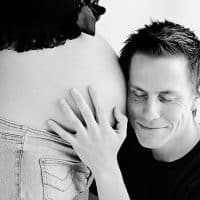
by Jennifer Shakeel
Congratulations, you have just given birth to a wonderful baby! However, as wonderful as giving birth is, the process puts tremendous stress and shock on your body. It is difficult to explain all of the complex and minute changes that your body has to go through to get your body back to pre-pregnancy status. In addition to recovering from being pregnant, the body also has to recover from the actual labor and birth of the baby, being up at all times of the night and day, severe sleep deprivation, and breastfeeding. Believe it or not your body goes through most of the changes in the first 30 days.
All of the “jobs” your body now has is often referred to the nutritional equivalent of running a half marathon… EVERY DAY. So it is important that new mothers understand that a lot of this work is done without them even realizing, so it is no wonder a mother’s body and emotions are under such strain and generally leave us feeling fragile at this time. As such, emotional, physical and other issues can arise – which if not managed well can manifest into longer term problems. Studies have shown that a high percentage of new mothers in western cultures have health and sexual problems for several months to a year after delivery, and reported this as “normal”.
All this is complicated by women who have difficult births. A difficult birth doesn’t necessarily relate to a physical event like tears or a C-section. It can simply be anything which makes a mother feels traumatized physically or emotionally. A new mom might feel she has had a difficult birth because her birth didn’t go according to her plan, support staff during her birth may have been unkind or unhelpful, or she may have suffered some other sense of loss of control
Outside of what the body is doing on its own, there are also the changes that the woman who just gave birth faces. Including but not limited to:
- Physical issues
- Physical exhaustion after labour
- Body in a state of shock due to sudden massive change
- Feeling fat
- Sore and achey (sore back/neck/pelvis etc)
- Concerns about how your body looks
- Healing scars/tears
- Emotional Issues
- Bonding with new baby
- Overwhelm at prospect of looking after new baby
- Feeling disconnected from your life (Feel disconnected from your life partner/husband and family/friends)
- Baby blues – casued by postnatal hormonal swings – sends poor new moms on an emotional rollercoaster.
- Shocked by sudden lack of freedom
- Worried because you are not madly in love with your child immediately – or generally not feeling insync with being a mother
- Guilt
- Beyond baby blues – some women will experience a higher level of depression after they give birth , experiencing anything from symptoms of extreme anxiety, inability to sleep, inability to eat, unrealistic and inconsolable concerns about the baby’s health, and occasionally, suicidal thoughts. Often these are related to both emotional and physical stresses on the body.
- Some mums describe having the following problems after childbirth:
- Unable to deal with household matters
- Overwhelmed by what having a baby is really like
- Revisiting images of labor
- Difficulty in your relationship with your partner
- Lack of libido
- Not wanting physical contact of any kind
- Concerns over breastfeeding/feeding baby
- Sleep deprivation
Common problems that mothers described during the first month included: fatigue, hemorrhoids, constipation, poor appetite, breathing difficulties, hot flashes, and breast problems and these can develop into longer term issues if the mother is not helped to get proper rest in order to heal.
So what are you to do to help your body and your mind cope with and work through all of the changes that are taking place now that you have given birth? I have listed a couple of recommendations. Granted some are more ideal then practical, but if you can practice even one ideal tip it will help your recovery process.
The first recommendation is actually a page of recovery from many eastern cultures. Which is a period of “confinement” for 30 days. Your doctor is going to tell you that you should be taking it easy for the first 6 weeks anyway so that your body can heal. I suggest taking a complete break from all but taking care of yourself and baby for the next 30 days. Now I know this sounds like a lot of time to take out of your regular life and responsibilities for some people, but if you consider that this is a foundational period of time which could impact your health and wellbeing for the next 30+ years, it is definitely and investment worth considering.
You can also use Massage. Massage is thought to help remove impurities from the mother’s body after she gives birth. And will help heaps of things from balancing hormones, to boosting your immune system. I recommend that you not only give yourself a massage daily but also massage baby. If you prefer you can hire doulas or call a local massage school and ask if there are students available to perform the massage as part of their certification. Here are few quick tips on massage so that it actually helps you heal:
- Massage should be done with a high quality cold pressed sesame oil. There are also special blends and preparations that you can purchase based on ancient ayuverdic recipes specifically for mother and also for baby.
- Should not be too firm – you want to support body healing, not add to tits injuries.
- Make sure room is warm and without drafts
- Massage from your head and work downwards using circular motions
Make sure that nutritional you are taking care of yourself. During the period of time immediately after a mother gives birth and her body is transitioning back to all its normal function, the digestion system is very fragile. Many new mothers report that what they eat has a massive impact on how they feel as well as a direct impact on the baby’s wellbeing if she is breastfeeding. In ancient Indian Ayuvedic traditions it is believed that proper support of the digestion for new mothers can massively impact infant colic, general healing and post natal depression for new mothers. Unfortunately most modern medical models do not incorporate or understand these principles.
In fact it is believed that what a mother eats during those first few weeks can affect her foundations for recovery for 30+ years.
You should also make sure that you are getting enough fluids. You wouldn’t believe the number of moms who tell me they suffer massive feelings of dehydration in that first month after childbirth. Whether it is to do with the actually birthing process, or the new demands on the body to produce milk, it is critical that mothers maintain a high intake of water.
Believe it or not, it is actually better for your health tell all of the potential visitors that you would like them to give you a little time before they come and visit. Right now is the time for you to heal and baby to get to know his/her new environment, as much as we love it, the time to show off baby is really after the first 30 days.
Know that it can take almost a full year for your body to completely return to normal after giving birth. Give yourself time and start the healing process off on the right foot.
Biography
Jennifer Shakeel is a writer and former nurse with over 12 years medical experience. As a mother of two incredible children with one on the way, I am here to share with you what I have learned about parenting and the joys and changes that take place during pregnancy. Together we can laugh and cry and rejoice in the fact that we are moms!
No part of this article may be copied or reproduced in any form without the express permission of More4Kids Inc © 2009 All Rights Reserved












Add Comment